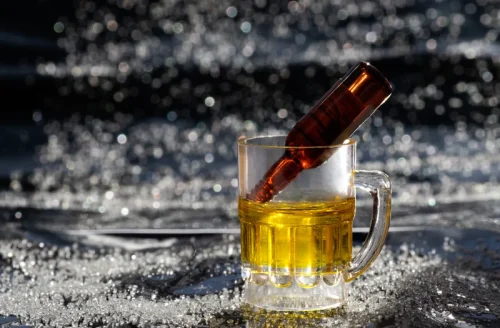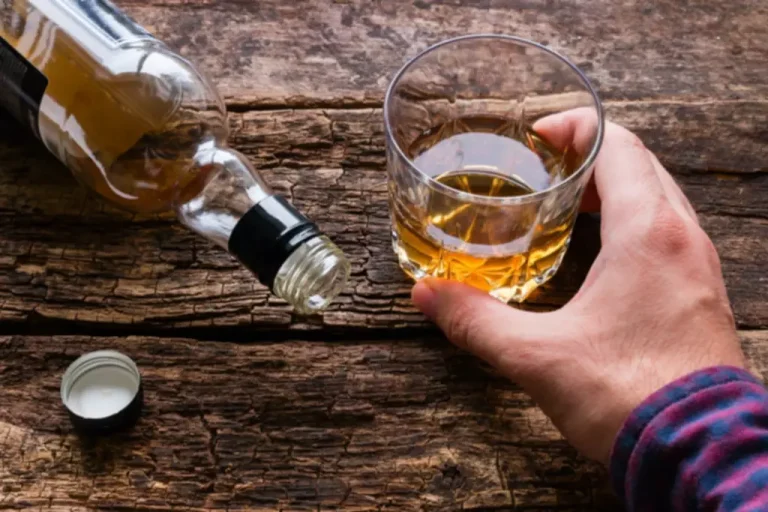
However, CBD products often contain more THC than the label suggests—and THC is addictive. Cannabidiol is generally considered safe, but it is essential to be aware of the potential effects, risks, and side effects you may encounter. Critical Cure is an Indica-dominant cannabis strain that has a lovely balance of CBD and THC percentages at around eight percent each. This descendant of Critical Kush will be sure to relieve tension, ease muscles, and provide a sense of satisfaction. It can offset the effects of human experimental anxiety from caffeine, nicotine, and other legal substances. This study showed that CBD, compared to placebo, helped decrease the cue-induced craving and anxiety of individuals with heroin use disorder.
- These substances might impact how medications are metabolized by your body.
- A 2017 study reported that only 31% of CBD products sold online were correctly labeled.
- CBD could also have some neuroprotective properties and has been shown to slow some degeneration of neurons.
- For example, one study found that CBD influences how the brain responds to serotonin, which may have an antidepressant-like effect.
- It blocks serotonin reuptake in the brain so that the body can use it more effectively.
Psilocybin Mushroom Spores: 4 Federally Legal Magic Mushroom Products For Research

According to federal law, all hemp-derived CBD products must contain less than 0.3% THC. You should always check your state’s laws before purchasing CBD or CBD-derived products. Generally speaking, cannabidiol (CBD) is considered a safe substance when applied topically or taken orally.
THC and CBD for Pain Relief
- Although several studies look into CBD oil’s potential health benefits, individuals must remember that CBD products are still subject to the US Food and Drug Administration (FDA) laws and requirements(20).
- It also covers the legality of these substances, how they are used, and how to get help if you are experiencing a THC addiction.
- Despite federal laws, the specifics of the legality of any THC or CBD product can vary from one state to the next.
- When choosing CBD products, it is also important to consider its formulation.
Previous reviews of the safety and tolerability of CBD did not include meta-analyses [12, 13], included data from other cannabinoids [14], or were limited to studies in epilepsy [15]. Given the recent approval of CBD by the FDA and EMA for childhood epilepsy syndromes, and the wide range of other indications for which it is being marketed, a quantitative assessment of its safety and tolerability is timely. The aim of the present study was to address this issue by conducting a systematic review and meta-analysis of the adverse effects of CBD across a range of indications. Shoppers may encounter a different kind of holiday gift this year — products that celebrate the health benefits of cannabidiol, or CBD, a chemical component of cannabis celebrated for its purported therapeutic effects. Legal when derived from hemp — a form of the cannabis plant — CBD is now found in shampoos, hand lotions, skin creams and even dog treats. Far-reaching medical claims tout its success at treating various conditions including anxiety, acne, insomnia, addiction, inflammation and Parkinson’s disease.
The Basics of Cannabinoids
If you buy CBD, it is safest to make sure that there is independent laboratory testing as attested to by a COA (certificate of analysis) that should accompany every CBD product. A significant safety concern with CBD is that it is primarily marketed and sold as a supplement, not a medication. Currently, the FDA does not regulate the safety and purity of dietary supplements, and no one, really, is regulating the CBD market. So you cannot be sure that the product you buy has active ingredients at the dose listed on the label. Thanks to generous benefactors, your gift today can have 5X the impact to advance AI innovation at Mayo Clinic. Sign up for free and stay up to date on research advancements, health tips, current health topics, and expertise on managing health.
The Potential Side Effects of CBD
A synergic effect was revealed when CBD was combined to THC, which reduced the abstinence score to a greater extent than THC alone. Hine et al conducted another study, with the same objectives, doses, and methodology as the previous one.23 Again, they found that CBD potentiated the THC-induced reduction in abstinence score and raised the number of turnings. The dose of naloxone required to provoke 50% of the mice to jump off of a platform was recorded during the withdrawal, as were defecation and rearing behaviors. CBD inhibited the naloxone withdrawal–induced jumping and reduced defecation and rearing behaviors. CBD can be derived from hemp or marijuana, while THC only comes from marijuana cannabis plants.
Data extraction
Further, low-quality CBD oil may cause some people to experience the psychoactive effects of cannabis use. Despite the many scientific studies looking into CBD oil’s potential benefits, individuals must consider its possible side effects. Meanwhile, CBD oil for children has become a popular treatment option among parents of children with anxiety. With evidence from Epidiolex studies, some parents of children with an autism spectrum disorder (ASD) turn to CBD. Several professionals have studied the effects of CBD on physical and mental health.

Clinical observations of the patient’s erratic behaviors, mood swings, and disorientation, together with the patient’s self-report of daily marijuana use, reinforced the diagnoses of bipolar disorder and addiction. He was administered the Pittsburgh Sleep Quality Index (PSQI)17 and the Hamilton Anxiety Rating Scale (HAM-A)18 prior to initiation of the CBD oil. Check your state laws to ensure that these products are legal where you live. Federal law mandates that hemp-derived CBD products should contain less than 0.3% THC, but even those trace amounts are still illegal in some states. Some research suggests that the potential therapeutic effects of THC and CBD tend to be greater when the two cannabinoids are taken together at the same time. While some early research suggests that CBD may have the potential for alleviating the symptoms of some conditions, a 2019 review of the existing research concluded that more research is needed to demonstrate these benefits.
Always look for third-party lab testing results to ensure the product contains only trace amounts of THC, especially if you want to avoid any psychoactive effects. Withdrawal from CBD does not produce the same symptoms as addictive substances, making it a safer option for those concerned about addiction potential. Hemp is different from marijuana even though they come from the same kind of plant – cannabis. Hemp has very little THC; that’s why you don’t get high from hemp products like oils or fabrics made from hemp fiber.

Clinical Findings

They can cause interactions with medications or have other safety concerns. For this reason, it’s important to be aware of what to look for when choosing a supplement, such as third-party testing, potential drug interactions, and more. CBD has been studied for its use in seizures, chronic pain, anxiety, inflammation, and more. However, varying levels of scientific evidence exist for these claims, meaning it’s unclear if CBD works for these conditions. All told, I think there is a real therapeutic potential for cannabinoids, but we cannot abandon the methods used to bring all other medications to market. Data that can be used to determine efficacy, safety, dosing and formulation is needed for each therapeutic area in which CBD is believed to be beneficial.
- In particular, one study assessed the impact of THC and CBD on cocaine- and amphetamine-induced conditioned place preference (CPP) in rats(12).
- The FDA cites clinical evidence suggesting people with Dravet and Lennox-Gastaut syndromes taking Epidiolex alongside other seizure medications had fewer seizures than those taking a placebo and other seizure medications.
- They found that both cannabinoids potentiated the extinction of cocaine- and amphetamine-induced place preference learning and that this effect was not reversed by the administration of a CB1 receptors antagonist.
Medical Marijuana: Facts about cannabis, THC, and CBD
According to Hazelden Betty Ford physicians, it’s a “buyer beware” environment. When heat is applied, THC, an addictive compound, breaks down and creates a mind-altering high by binding with the cannabinoid receptors in the brain; raw cannabis doesn’t do this. Depending on the amount of THC, it can induce relaxation and enjoyable is cannabidiol addictive altered perceptions in some people, and anxiety, increased blood pressure, hallucinations, paranoia and even psychosis in others. As such, CBD derived from hemp plants was no longer categorized under Schedule I. Still, marijuana-derived CBD remained federally illegal due to the high concentration of psychoactive properties.







No Response to "CBD and Cannabinoids"